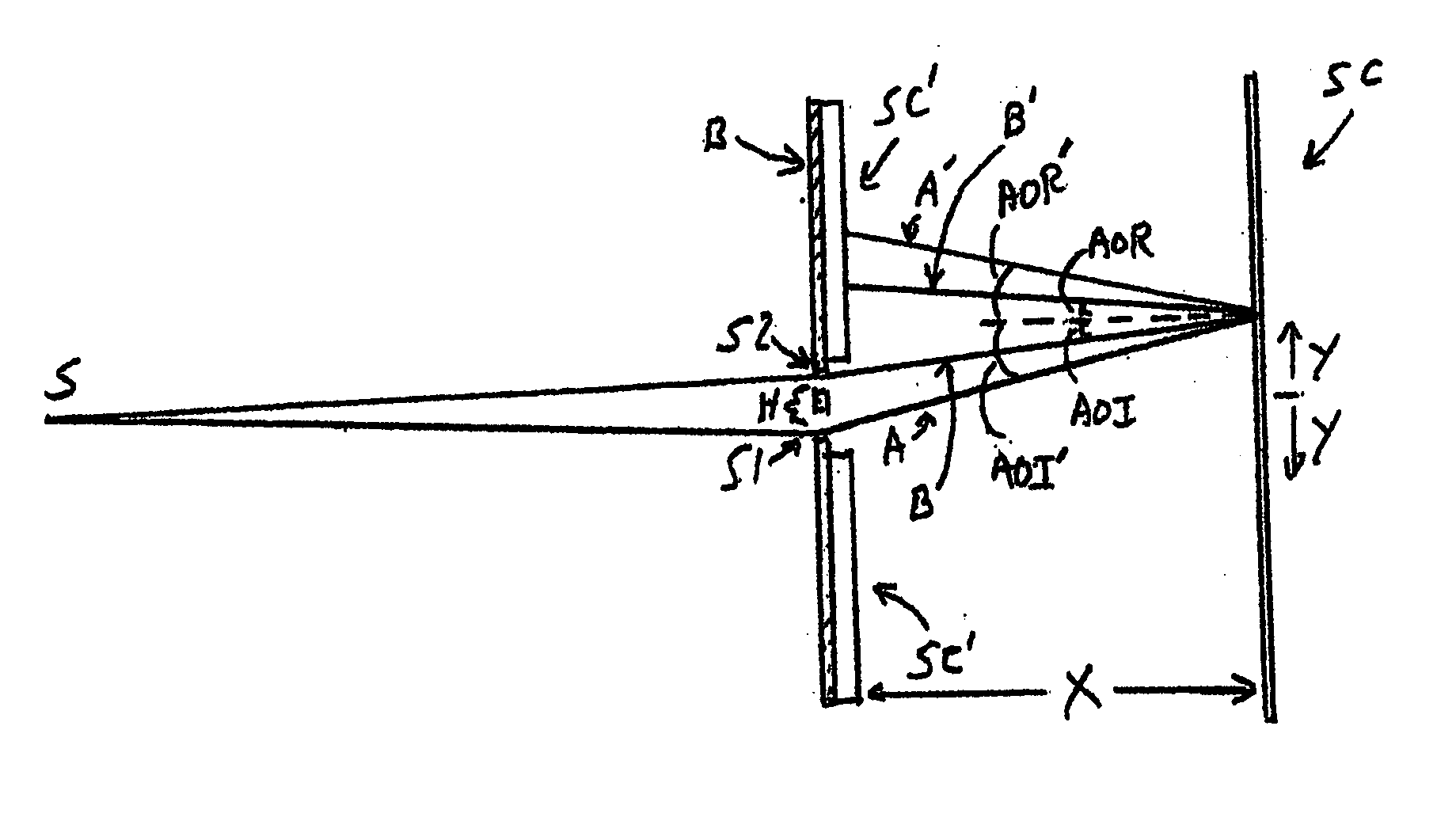System and method for investigating photon or particle trajectory and interference pattern formation in double slit experiments
a double slit experiment and interference pattern technology, applied in the field of system and method for investigating the trajectory of photon or particle and interference pattern formation in double slit experiments, can solve the problems of incomplete destruction of interference pattern, no experimental evoidence, no insight provided for detecting photons or particles
- Summary
- Abstract
- Description
- Claims
- Application Information
AI Technical Summary
Benefits of technology
Problems solved by technology
Method used
Image
Examples
Embodiment Construction
[0039] As described in the Background Section, for a Double Slit (S1) (S2) arrangement, the Interference Pattern formed at a Primary screen (SC) is characterized by:
H×Sin(θ)=p×wavelength; and
as Sin(θ) is approximately Y / X, the position “Y” on a Primary screen where a photon or particle impinges after passing through Double Slits, which are Spaced apart by “H” is Y=p×Wavelength×XH;
where “X” is the distance of the Primary screen from said Double Slits, and where “Y” is the distance from the perpendicular intersection of the Primary screen by a line taken from the mid-point between the Double Slits which is perpendicular to the Plane of said Double Slits. The present invention obeys said teachings.
[0040]FIG. 1a demonstrates a Primary screen (SC) can be comprised of a Reflective Substrate (SUB) with a thin layer of Emulsion (EMU) on its surface. (Note, (EMU) can indicate an array of photon or particle detector elements). Any functional means for documenting the arrival of a photon...
PUM
 Login to View More
Login to View More Abstract
Description
Claims
Application Information
 Login to View More
Login to View More - R&D
- Intellectual Property
- Life Sciences
- Materials
- Tech Scout
- Unparalleled Data Quality
- Higher Quality Content
- 60% Fewer Hallucinations
Browse by: Latest US Patents, China's latest patents, Technical Efficacy Thesaurus, Application Domain, Technology Topic, Popular Technical Reports.
© 2025 PatSnap. All rights reserved.Legal|Privacy policy|Modern Slavery Act Transparency Statement|Sitemap|About US| Contact US: help@patsnap.com



